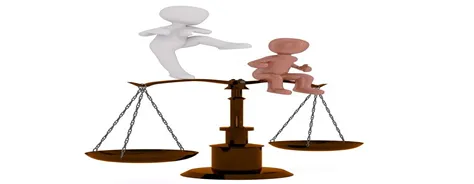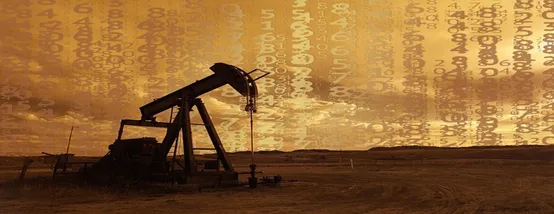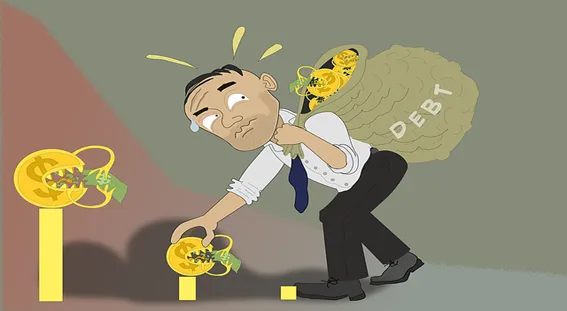

Once upon a time, in the early 70's, there was a country in South America where the economy was one of the most stable in the region with a very low inflation rate, which is why this term was not studied in schools, colleges and universities. Its rulers were careful not to spend more than they received from public revenues and not to borrow from friendly nations. But in 1974, a ruler arrived, who had a majority in Congress, and managed to increase that year's budget for the acquisition of goods and services by the State. The Central Bank objected but the government ignored it.


The new ruler dismissed personnel from State agencies to be replaced by people who belonged to his political party. The country depended on oil and the growth of prices in the international market was constant, so an abundance of economic resources began to appear. In addition, with such an abundance of resources circulating in the economy, corruption was present!
Dado esto el gobernante puso en manos del estado empresas que eran exitosas en manos privadas, aumentando así la burocracia. Esto ocasiono aumento de nóminas. Decretó aumentos de sueldos y salarios que no guardaban relación con la productividad del país. El gobierno abandona proyectos de: autopistas, acueductos, planes habitacionales, ferrocarriles y motores. No existían planes de planificación urbana.

Given this, the ruler put in the hands of the state companies that were successful in private hands, thus increasing the bureaucracy. This caused an increase in payrolls. He decreed wage and salary increases that were not related to the country's productivity. The government abandoned projects of: highways, aqueducts, housing plans, railroads and engines. There were no urban planning plans.
El país es también rico en minerales y en 1975 el Estado nacionaliza la explotación del mineral de hierro. En 1976 el Estado también nacionaliza la industria petrolera y crea una empresa que manejará este recurso y así sustituye a las extranjeras. Cabe recalcar que la producción agrícola retrocede.
El gobierno permitió a empresas estatales la autonomía administrativa, de esta forma, muchas pidieron préstamos para su crecimiento, obteniéndolos con facilidad, ya que el aval del país era suficiente dado sus ingresos petroleros. Ya para 1979, el nivel de la deuda pública era muy alto. Paralelamente, el gobierno estimuló el aumento de las importaciones, colapsando así a los puertos en donde se recibían. Mucha de esta mercancía incluía productos que se manufacturaban en el país.
Todo lo anteriormente expresado trajo como consecuencia que: en los años 1977 y 1978, existiese una distorsión monetaria ya que de las arcas del país se gastaba más dinero del que ingresaba.
Esta prosperidad resultó ser ficticia, ya que dependía del precio del petróleo en el mercado y unos años después, con la caída del valor del crudo, se verán las consecuencias.
The country is also rich in minerals and in 1975 the State nationalized the exploitation of iron ore. In 1976 the State also nationalized the oil industry and created a company to manage this resource, thus replacing foreign companies. It should be noted that agricultural production declined.
The government allowed state-owned companies administrative autonomy, and many of them asked for loans for their growth, obtaining them easily, since the country's collateral was sufficient given its oil revenues. By 1979, the level of public debt was already very high. At the same time, the government stimulated an increase in imports, thus collapsing the ports where they were received. Much of this merchandise included products that were manufactured in the country.
All of the above resulted in the following: in 1977 and 1978, there was a monetary distortion since more money was being spent from the country's coffers than was coming in.
This prosperity turned out to be fictitious, since it depended on the price of oil in the market and a few years later, with the fall in the value of crude oil, the consequences will be seen.

Con este breve relato se da una introducción a los términos: Estado, gobierno, disciplina fiscal, banco central, balanza de pago, gasto público, distorsión monetaria, corrupción e inflación. La historia continua en los años 80!.
With this brief account an introduction to the terms: State, government, fiscal discipline, central bank, balance of payments, public spending, monetary distortion, corruption and inflation. The story continues into the 1980s.
Espero haber despertado curiosidad en la comunidad y los invito a indagar más en estos temas que nos ayudan a comprender que está pasando en estos momentos en nuestro país.
I hope to have aroused curiosity in the community and I invite you to investigate more on these topics that help us to understand what is happening right now in our country.
Gracias por la atención comunidad Hive.
Thanks for your attention Hive community.
La primera ilustración fué tomada de Pixabay Fuente
The first illustration was taken from Pixabay
Ingles no es mi idioma materno por lo cual he utilizado el traducto DeepL.
English is not my native language so I have used the translator DeepL.